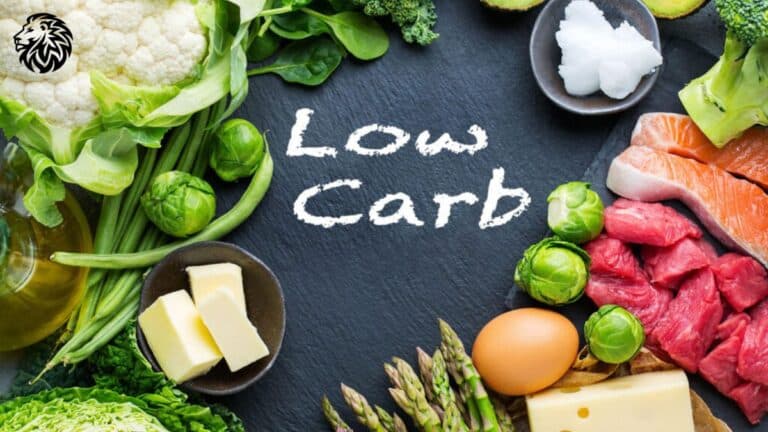Low-carb diets have surged in popularity over the last few decades, becoming a go-to choice for many looking to lose weight and improve their health. At their core, these diets involve reducing the intake of carbohydrates, often emphasizing higher consumption of proteins and fats. The philosophy behind this approach is based on the idea that lowering carbohydrate intake leads to decreased insulin levels, which in turn can facilitate fat burning and reduce hunger.
Despite their widespread popularity, low-carb diets are often misunderstood. Many people embark on this dietary journey with misconceptions about what it entails and what is permissible to eat. A common mistake is thinking that simply reducing carb intake, regardless of other dietary factors, will automatically lead to weight loss. However, there are several nuances to consider, such as the types of fats and proteins consumed, overall calorie intake, and individual metabolic responses.
Moreover, there’s often a lack of understanding about the different types of carbohydrates and their effects on the body. For instance, not all carbs are created equal; complex carbohydrates found in vegetables and whole grains have a different impact on the body compared to simple carbs found in sugary snacks.
Understanding these intricacies is crucial for anyone looking to successfully lose weight on a low-carb diet. This article will delve into the top 10 reasons why people might not be losing weight on a low-carb diet, debunking myths, and providing insights for a more effective and sustainable approach to this popular dietary trend.
Top 10 Reasons You’re Not Losing Weight on a Low-Carb Diet
1. Insufficient Calorie Deficit

Understanding Caloric Balance
The fundamental principle behind weight loss is creating a calorie deficit, which means burning more calories than you consume. This principle holds true regardless of the type of diet you follow, including low-carb diets. It’s a common misconception that simply cutting carbs will lead to weight loss. However, if you’re consuming more calories than your body needs, even from low-carb sources, you won’t lose weight.
The body uses calories as energy to perform all its functions, from breathing to exercise. When it doesn’t get enough calories from the food you eat, it starts using stored fat for energy, leading to weight loss. The size of the calorie deficit influences the rate of weight loss; a larger deficit typically results in faster weight loss, but it’s important to ensure that the deficit is sustainable and doesn’t lead to other health issues.
Hidden Calories
One of the traps many people fall into on a low-carb diet is not accounting for the hidden calories, especially from high-fat foods. While fats are a key component of low-carb diets, they are also calorie-dense. For example, a tablespoon of oil or butter contains around 100-120 calories. Nuts, seeds, cheese, and fatty meats are other high-calorie, low-carb foods that can easily lead to an excess calorie intake if not monitored.
Portion control is crucial, even with low-carb foods. A common mistake is to eat larger portions of protein and fat to compensate for the reduced carb intake, leading to an inadvertent increase in overall calories. Also, some low-carb processed foods might contain added sugars or other high-calorie ingredients that can contribute to a higher calorie intake than expected.
In conclusion, to achieve weight loss on a low-carb diet, it’s essential to be mindful not only of the carbs but also of the total calorie intake. Understanding and monitoring your caloric balance, and being aware of the hidden calories in low-carb foods, are key steps in ensuring your diet is effective.
2. Overconsumption of Protein or Fats

Balancing Macronutrients
While low-carb diets typically involve higher intakes of proteins and fats, it’s essential to strike a balance. Overconsumption of these macronutrients can hinder weight loss efforts. Proteins and fats are more satiating than carbohydrates, which can help reduce overall calorie intake, but they still contain calories – proteins have about 4 calories per gram, and fats have about 9 calories per gram. Consuming these macronutrients in excess can lead to a calorie surplus, negating the calorie deficit needed for weight loss.
An important aspect of a successful low-carb diet is understanding that it’s not just about reducing carbs, but also about consuming proteins and fats in moderation. The key is to focus on lean protein sources and healthy fats while keeping track of their quantities. This approach not only aids in weight management but also supports overall health.
Common Pitfalls
Some common high-calorie, low-carb foods can easily lead to overconsumption:
- Cheese and Dairy Products: Cheese is low in carbs but high in fat and calories. It’s easy to consume large quantities without realizing, especially when used as a snack or a topping.
- Nuts and Seeds: While they are nutritious and a good source of healthy fats, nuts and seeds are very calorie-dense. A small handful can contain hundreds of calories.
- Oils and Butters: Cooking oils, butter, and ghee are pure fats and very high in calories. Using large amounts for cooking or as dressings can significantly increase calorie intake.
- Fatty Cuts of Meat: Meats like bacon, ribeye steaks, and others with visible fat are low in carbs but high in calories. Choosing leaner cuts of meat can help manage calorie intake.
- Low-Carb Processed Foods: These often contain high amounts of fats and calories to improve taste and texture. It’s crucial to read labels carefully.
In conclusion, while increasing protein and fat intake is a hallmark of low-carb diets, it’s important to do so in a balanced way. Monitoring and moderating the consumption of these macronutrients is critical to achieving and maintaining a calorie deficit for weight loss. Awareness of high-calorie, low-carb foods and mindful eating practices can greatly aid in this endeavor.
3. Lack of Dietary Fiber

Fiber’s Role in Weight Loss
Dietary fiber plays a crucial role in weight loss and overall health, yet it is often overlooked in low-carb diets. Fiber, found mainly in plant-based foods, aids in digestion and helps maintain a healthy gut. It also plays a significant role in promoting satiety – the feeling of fullness after eating. This can help reduce overall calorie intake by minimizing unnecessary snacking and overeating.
Fiber also has a low-calorie profile and can help regulate blood sugar levels, preventing the spikes and crashes that can lead to cravings. Additionally, high-fiber foods usually require more chewing, which can slow down the eating process, giving the body more time to register fullness. Despite its many benefits, fiber is sometimes neglected in low-carb diets because many high-fiber foods are also high in carbohydrates.
Sources of Low-Carb Fiber
Finding sources of fiber that fit into a low-carb diet requires choosing foods that are high in fiber but low in net carbs (total carbohydrates minus fiber). Some excellent low-carb, high-fiber foods include:
- Leafy Greens: Spinach, kale, and other leafy greens are high in fiber and nutrients while being low in carbs.
- Cruciferous Vegetables: Broccoli, cauliflower, and Brussels sprouts are not only rich in fiber but also packed with vitamins and minerals.
- Nuts and Seeds: Almonds, chia seeds, and flaxseeds are good sources of fiber. However, it’s important to be mindful of portion sizes due to their high-calorie content.
- Avocados: A unique fruit that’s low in carbs but high in healthy fats and fiber.
- Berries: Raspberries, blackberries, and strawberries have more fiber and fewer carbs than most other fruits.
- Mushrooms: Low in carbs and calories, mushrooms can add fiber and texture to various dishes.
Incorporating these fiber-rich, low-carb foods into your diet can enhance digestive health, improve satiety, and support your weight loss goals on a low-carb diet. Remember, while focusing on reducing carbs, it’s essential not to neglect other crucial components of your diet, such as fiber, for overall health and effective weight management.
4. Not Tracking Food Intake Accurately

Importance of Food Logging
One of the key strategies for successful weight loss, particularly in a low-carb diet, is accurate food tracking. Keeping a food diary or using a food tracking app can make a significant difference. This practice helps in creating awareness of what and how much you’re eating. It can be eye-opening to see the actual calorie and macronutrient content of your meals and snacks, leading to more informed and healthier choices.
Logging food intake also helps in maintaining a calorie deficit by allowing you to monitor your daily calorie consumption. It can be particularly beneficial in a low-carb diet to ensure you’re not overeating other macronutrients, like fats and proteins. Additionally, consistent food tracking can help identify patterns or habits, such as late-night snacking or overeating on weekends, which might be hindering weight loss.
Common Mistakes in Tracking
Despite the benefits, many people make errors in tracking their food intake, which can impede their weight loss efforts:
- Underestimating Portion Sizes: It’s easy to underestimate how much you’re eating, especially with calorie-dense foods like nuts, cheese, and oils. Using measuring tools or a food scale can improve accuracy.
- Forgetting to Log Snacks: Small bites and snacks throughout the day can add up. It’s important to log everything you eat, no matter how insignificant it may seem.
- Not Accounting for Cooking Oils: Oils used in cooking can contribute a significant number of calories. Remember to include these in your food diary.
- Overlooking Liquid Calories: Beverages, especially those with added sugars or high-fat dairy products, can be high in calories. These should also be logged.
- Guessing Nutritional Information: When possible, use specific nutritional information from food labels or databases rather than guessing, which can lead to inaccuracies.
In conclusion, accurately tracking your food intake is a critical component of a successful low-carb diet. It can provide valuable insights into your eating habits and help maintain a calorie deficit. Avoiding common tracking mistakes can enhance the effectiveness of your diet and support your weight loss journey.
5. Excessive Consumption of Artificial Sweeteners

Sweeteners and Appetite
Artificial sweeteners, often used in low-carb diets as a substitute for sugar, can be a double-edged sword. While they are low in calories and carbs, their impact on appetite and cravings can be counterproductive for weight loss. These sweeteners can maintain a preference for sweet flavors, potentially leading to increased cravings for sugary foods.
Moreover, some research suggests that artificial sweeteners may disrupt the body’s ability to regulate calorie intake. They can trick the brain into expecting an influx of calories that never comes, which might lead to increased hunger and overeating later. Additionally, there is some evidence that artificial sweeteners may negatively affect the gut microbiome, potentially influencing metabolism and appetite regulation.
Healthier Alternatives
For those on a low-carb diet looking to satisfy their sweet tooth, there are healthier, natural sweetener options that are low in carbohydrates:
- Stevia: A plant-based sweetener with no calories and a glycemic index of zero. It’s much sweeter than sugar, so only a small amount is needed.
- Erythritol: A sugar alcohol that tastes similar to sugar but has almost no calories and does not spike blood sugar levels.
- Monk Fruit Sweetener: Derived from the monk fruit, it contains no calories and has a glycemic index of zero. It’s many times sweeter than sugar and can be used in baking and cooking.
- Xylitol: Another sugar alcohol that is lower in calories than sugar and has a lower impact on blood sugar. However, it should be used sparingly as it can cause digestive issues in some people.
- Yacon Syrup: Extracted from the yacon plant, this sweetener is high in fructooligosaccharides, which function as soluble fibers and feed the good bacteria in the intestine.
When using these alternatives, it’s important to do so in moderation. Even natural sweeteners can maintain cravings for sweet tastes if overused. Gradually reducing the overall sweetness in your diet can help diminish sugar cravings over time, contributing to a more effective and sustainable low-carb lifestyle.
6. Lack of Physical Activity

Exercise and Metabolism
Physical activity is a vital component of any weight loss plan, including a low-carb diet. Exercise complements dietary efforts by boosting metabolism, increasing muscle mass, and burning calories. When you engage in physical activity, your body uses energy (calories) to fuel the movement. Consistent exercise not only burns calories during the activity but also enhances your resting metabolic rate, meaning you burn more calories even at rest.
Muscle tissue is more metabolically active than fat tissue, so building muscle through exercise can lead to a higher daily calorie burn. Additionally, exercise, especially strength training, helps prevent muscle loss that can occur during weight loss, ensuring that more of the weight lost comes from fat rather than muscle.
Integrating Exercise
Incorporating exercise into a busy schedule can be challenging, but it’s essential for effective weight loss and overall health. Here are some tips to integrate physical activity into your routine:
- Start with Short Sessions: Even 10-15 minutes of exercise can be beneficial. Consider short, high-intensity workouts if you’re pressed for time.
- Incorporate Activity into Daily Life: Take the stairs instead of the elevator, walk or bike to work, or try standing desks or walking meetings.
- Schedule Workouts: Treat exercise like any other important appointment. Put it on your calendar and prioritize it.
- Variety is Key: Mix different types of exercises to keep things interesting – combine cardio, strength training, and flexibility exercises.
- Find Enjoyable Activities: Choose forms of exercise that you enjoy. You’re more likely to stick with it if you’re having fun.
- Home Workouts: If getting to a gym is hard, try home workout routines that require minimal equipment.
- Stay Consistent: Consistency is more important than intensity. Regular moderate exercise is better than sporadic intense workouts.
- Involve Others: Exercising with a friend or joining a class can increase motivation and accountability.
Remember, the goal is to find sustainable ways to include physical activity in your life. This doesn’t mean you need to spend hours at the gym; it’s about finding opportunities to move more throughout your day and selecting exercises that you enjoy and can stick with in the long term. Combining exercise with a low-carb diet can significantly enhance weight loss efforts and contribute to overall well-being.
7. Stress and Poor Sleep

The Hormonal Impact
Stress and sleep play significant roles in weight management, often underestimated in diet and exercise plans. Stress can lead to the overproduction of cortisol, a hormone associated with fat storage, particularly in the abdominal area. It can also trigger emotional eating or cravings for high-calorie, comfort foods.
Similarly, inadequate sleep affects the hormones that regulate hunger – ghrelin and leptin. Ghrelin signals hunger to the brain, and leptin signals fullness. When you’re sleep-deprived, your body produces more ghrelin and less leptin, leading to increased hunger and appetite, making it more challenging to stick to a healthy eating plan.
Both stress and lack of sleep can also impact your metabolism and energy levels, making it harder to be physically active and maintain a healthy lifestyle.
Stress Management and Sleep Hygiene
Implementing strategies for stress management and improving sleep quality can have a positive impact on your weight loss efforts:
- Develop Stress-Reduction Techniques: Activities like yoga, meditation, deep breathing exercises, or even simple hobbies can help manage stress levels.
- Regular Physical Activity: Exercise is not only good for physical health but also for reducing stress. Even a short daily walk can make a difference.
- Establish a Sleep Routine: Going to bed and waking up at the same time each day helps regulate your body’s internal clock.
- Create a Restful Environment: Ensure your bedroom is conducive to sleep – quiet, dark, and at a comfortable temperature.
- Limit Screen Time Before Bed: The blue light from screens can disrupt your body’s ability to prepare for sleep. Try reading a book or other calming activities instead.
- Avoid Caffeine and Heavy Meals Before Bed: These can disrupt sleep. Aim to finish eating a few hours before bedtime and limit caffeine in the afternoon and evening.
- Consider Relaxation Techniques: Practices like progressive muscle relaxation or listening to calming music can improve sleep quality.
- Seek Professional Help if Necessary: If chronic stress or sleep issues persist, it might be beneficial to consult a healthcare provider or a therapist.
Improving sleep quality and managing stress can create a more favorable hormonal environment for weight loss and overall health. These elements are as integral to a successful low-carb diet and weight loss journey as diet and exercise.
8. Unrealistic Expectations

Setting Realistic Goals
One of the common reasons for frustration in a weight loss journey, especially on a low-carb diet, is setting unrealistic expectations. It’s important to understand that healthy weight loss is typically gradual. A safe and sustainable rate of weight loss is about 1 to 2 pounds per week. Rapid weight loss might seem appealing, but it often involves losing water weight and muscle mass rather than fat and can lead to health issues and nutritional deficiencies.
Healthy weight loss should involve changes you can maintain over the long term, rather than quick fixes. Setting realistic goals also means acknowledging that weight loss is not linear; there will be weeks where you might not see any change or even slight increases in weight due to factors like fluid fluctuations, hormonal changes, or building muscle.
Patience and Persistence
Adopting a long-term perspective is crucial for dieting success. Here are some strategies to help cultivate patience and persistence:
- Celebrate Small Victories: Recognize and celebrate non-scale victories, like improved energy levels, better fitting clothes, or making healthier food choices.
- Understand and Accept Plateaus: Weight loss plateaus are normal. Rather than getting discouraged, use them as an opportunity to reassess and adjust your plan if necessary.
- Avoid Constant Weighing: Weighing yourself daily can be discouraging due to normal fluctuations. Try weekly or bi-weekly check-ins instead.
- Focus on Lifestyle Changes: Instead of just focusing on the diet, concentrate on making broader lifestyle changes that contribute to overall health.
- Seek Support: Joining a support group or engaging with a community following a similar diet plan can provide encouragement and motivation.
- Be Mindful of Body Signals: Pay attention to how your body feels. Sometimes, the body needs time to adjust to dietary changes.
- Adjust Goals as Needed: Be flexible and willing to adjust your goals as you progress in your journey. What works initially might need to be modified over time.
Remember, weight loss is a journey, and a low-carb diet is just one part of a larger lifestyle change. Developing patience and persistence while setting realistic goals can lead to more meaningful and long-lasting results.
9. Medical Conditions and Medications

Health Factors
Certain medical conditions and medications can significantly impact weight loss efforts. Some health issues, such as hypothyroidism, polycystic ovary syndrome (PCOS), and insulin resistance, can slow down metabolism or affect the body’s ability to use insulin effectively, making it more challenging to lose weight. Additionally, mental health conditions like depression and anxiety can influence eating habits and physical activity levels.
Medications for various conditions, including diabetes, high blood pressure, antidepressants, and corticosteroids, may have side effects that promote weight gain or make it harder to lose weight. These drugs can increase appetite, slow down metabolism, or cause fluid retention, all of which can impede weight loss progress.
Seeking Medical Advice
Given the potential impact of medical conditions and medications on weight loss, it’s crucial to consult with healthcare professionals. Here are a few reasons why:
- Accurate Diagnosis: A healthcare provider can determine if there are any underlying medical issues affecting weight loss.
- Medication Review: A doctor or pharmacist can review current medications to identify any that might be contributing to weight difficulties.
- Personalized Advice: Healthcare professionals can provide tailored recommendations based on individual health needs, including adjustments to diet plans or exercise routines.
- Monitoring and Adjustments: Regular check-ins with a healthcare provider can help monitor progress and make necessary adjustments to treatment plans.
- Alternative Treatment Options: If current medications are hindering weight loss, a healthcare provider may suggest alternative treatments.
- Support and Guidance: Professional guidance can help manage expectations and provide support through the weight loss journey, particularly in the presence of chronic health conditions.
It’s important to approach weight loss with a clear understanding of your overall health. Working closely with healthcare professionals can ensure that your weight loss plan is safe, effective, and tailored to your individual health needs. This collaborative approach can enhance the effectiveness of a low-carb diet and help achieve sustainable weight loss results.
10. Neglecting Whole Foods for Processed Low-Carb Alternatives

Whole Foods vs. Processed Foods
Opting for whole foods over processed low-carb alternatives is crucial for a successful and healthy low-carb diet. Whole foods are minimally processed and closer to their natural state, providing essential nutrients without unnecessary additives. They typically contain more fiber, vitamins, and minerals compared to processed foods. Whole foods also have a higher nutritional density, meaning they provide more nutrients per calorie, which is beneficial for overall health and weight management.
Processed low-carb foods, while convenient, often lack essential nutrients and can be high in unhealthy fats, artificial sweeteners, and preservatives. These additives can trigger cravings, lead to overeating, and may have adverse health effects in the long run. Moreover, processed foods are often less satiating than whole foods, which can lead to snacking and a higher overall calorie intake.
Reading Labels
Being able to read and understand food labels is essential when selecting healthy, whole-food choices, especially in a low-carb diet. Here are some tips:
- Look for Short Ingredient Lists: The fewer the ingredients, and the more recognizable they are, the better. This usually indicates minimal processing.
- Check for Added Sugars: Even low-carb foods can contain added sugars. Be wary of terms like sucrose, glucose, high fructose corn syrup, and others.
- Identify Whole Food Ingredients: Choose products with whole food ingredients, such as whole grains, nuts, seeds, fruits, and vegetables.
- Beware of ‘Low-Carb’ Labels: Just because something is labeled as low-carb doesn’t necessarily mean it’s healthy. Assess the overall nutritional value.
- Watch Out for Artificial Additives: Preservatives, colorings, and artificial flavors may be present in processed low-carb foods.
- Understand Serving Sizes: Ensure that the serving size on the label corresponds to the amount you’ll actually eat.
In conclusion, focusing on whole foods and being able to discern their quality through label reading are essential skills in a low-carb diet. This approach not only aids in weight loss but also contributes to overall health and well-being. It’s important to remember that a low-carb diet should be about more than just reducing carbohydrate intake; it should also be about making nutritious and wholesome food choices.
Conclusion
In summary, while low-carb diets can be effective for weight loss, their success depends on more than just cutting out carbohydrates. Key factors to consider include:
- Ensuring a Caloric Deficit: Remember, weight loss requires burning more calories than you consume.
- Balancing Macronutrients: Avoid overconsumption of proteins and fats, even in a low-carb plan.
- Incorporating Dietary Fiber: Include fiber-rich, low-carb foods for better digestion and satiety.
- Accurate Food Tracking: Keep an honest record of your food intake to avoid underestimating calorie consumption.
- Moderating Artificial Sweeteners: Be cautious of overusing these as they can affect appetite and cravings.
- Including Physical Activity: Exercise is a crucial component for boosting metabolism and aiding weight loss.
- Managing Stress and Sleep: Both play significant roles in hormonal balance and appetite control.
- Setting Realistic Expectations: Approach weight loss with patience and understand that it’s a gradual process.
- Considering Health Factors: Consult healthcare professionals regarding the impact of medical conditions and medications.
- Choosing Whole Foods Over Processed: Focus on nutrient-dense whole foods for optimal health benefits.
As you embark on or continue your low-carb journey, it’s important to view it as a learning process. Nutrition and weight management are complex and highly individualized. Be open to adapting your diet plan as you learn more about your body’s responses and as your lifestyle changes. Remember, the goal is not only weight loss but also overall health and well-being. Continuous learning, mindful eating, and a balanced approach to diet and lifestyle choices are the keys to long-term success.
Frequently Asked Questions
- Can I still lose weight on a low-carb diet if I don’t exercise?
- Yes, weight loss is primarily about creating a caloric deficit. While exercise helps, it’s possible to lose weight through dietary changes alone. However, incorporating exercise can accelerate weight loss and improve overall health.
- Are all low-carb foods good for weight loss?
- Not necessarily. Some low-carb foods can be high in calories and unhealthy fats. It’s important to focus on nutrient-dense whole foods and maintain a balanced diet for effective weight loss.
- How much fiber should I aim for on a low-carb diet?
- The recommended daily intake of fiber is 25 grams for women and 38 grams for men. Even on a low-carb diet, try to meet this goal by consuming high-fiber, low-carb foods like leafy greens and certain seeds and nuts.
- Can artificial sweeteners hinder weight loss?
- Yes, artificial sweeteners can maintain cravings for sweet flavors and may disrupt the body’s ability to regulate calorie intake, potentially leading to increased hunger and overeating.
- Is it possible to eat too much protein on a low-carb diet?
- Yes, overconsumption of protein can lead to excess calories. Balance your protein intake with healthy fats and fiber to ensure a well-rounded diet.
- How do I handle social situations on a low-carb diet?
- Plan ahead by checking the menu online, eat a small, healthy snack beforehand to avoid overeating, and don’t hesitate to ask for customizations like swapping out high-carb sides for vegetables.
- Why is my weight loss slowing down after the first few weeks of a low-carb diet?
- Initial weight loss is often water weight. As your body adjusts, weight loss may slow down but become more consistent and sustainable. Patience and persistence are key.
- Can stress really affect my weight loss on a low-carb diet?
- Yes, stress can increase cortisol levels, leading to cravings and potential weight gain. Managing stress through techniques like meditation, exercise, and adequate sleep is important for weight loss.







